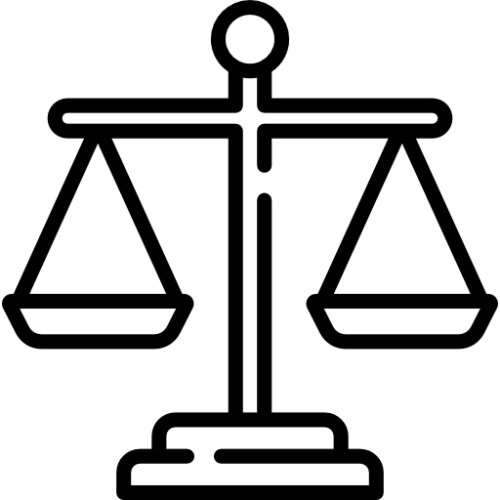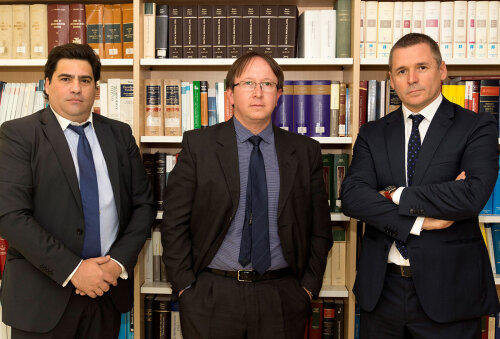Best Constitutional Law Lawyers in Spain
Share your needs with us, get contacted by law firms.
Free. Takes 2 min.
Or refine your search by selecting a city:
List of the best lawyers in Spain
About Constitutional Law in Spain
Constitutional Law in Spain is primarily governed by the Spanish Constitution of 1978, which is the supreme legal document of the country. It establishes the framework of the Spanish government, defining the separation of powers among the executive, legislative, and judicial branches, and it outlines the rights and duties of its citizens. Spanish Constitutional Law safeguards fundamental rights such as the right to education, health, freedom of speech, and the right to privacy. Given its broad scope and foundational importance, Constitutional Law serves as a benchmark against which other laws and legal provisions are judged for compatibility and constitutionality.
Why You May Need a Lawyer
There are several scenarios where legal assistance in Constitutional Law might be required. These include:
- Challenges to or disputes over the constitutionality of laws or regulations.
- Cases involving the violation of fundamental rights protected under the Spanish Constitution.
- Legal guidance on separation of powers or administrative law matters.
- Litigation involving governmental bodies or public entities.
- Defense or legal representation before the Constitutional Court.
In such situations, having a lawyer specialized in Constitutional Law can provide insight and representation vital to navigating the complex legal landscape effectively.
Local Laws Overview
Several key aspects of local laws are intrinsically linked to Constitutional Law in Spain:
- Separation of Powers: The Constitution delineates clear roles and limitations for the executive, legislative, and judicial branches, ensuring a balance of power and preventing abuse.
- Autonomous Communities: Spain's Constitution recognizes and grants autonomy to various regions, each having its own local statutes and regulations, while remaining under the national legal framework.
- Fundamental Rights and Freedoms: The Constitution enshrines several fundamental rights. Any law or action perceived to infringe these rights can be challenged on constitutional grounds.
- National vs. Regional Legislation: Although autonomous communities have jurisdiction over certain local matters, national law prevails in constitutional issues, and understanding this dynamic is important when addressing legal matters.
Frequently Asked Questions
What is the role of the Constitutional Court in Spain?
The Constitutional Court of Spain is responsible for interpreting the Constitution, resolving disputes regarding the distribution of powers between national and regional governments, and ensuring that laws comply with constitutional mandates.
Can individuals directly approach the Constitutional Court?
Generally, individuals cannot directly file cases with the Constitutional Court. Instead, they must first exhaust all other legal avenues before petitioning the court on constitutional grounds, often through an "amparo" appeal.
What is an "amparo" appeal?
An "amparo" appeal is a legal mechanism used in Spain to protect individuals' constitutional rights by directly addressing alleged violations before the Constitutional Court.
How are fundamental rights protected under the Spanish Constitution?
Fundamental rights are outlined in Sections 14 to 29 of the Constitution and are protected against infringement by any legislative action or governmental authority.
What legal avenues are available if a law seems unconstitutional?
If a law appears unconstitutional, it can be challenged through an appeal to the Constitutional Court, usually following a referral by the Supreme Court or regional high courts.
Can regional laws supersede national laws?
No, regional laws cannot supersede national laws if a conflict arises on constitutional issues. The Constitutional Court resolves such disputes, prioritizing national law.
How does the Constitution address international treaties?
According to the Spanish Constitution, international treaties become part of the national legal order after being ratified and published in the Official State Gazette, provided they align with constitutional principles.
What rights does the Constitution guarantee regarding privacy?
The Constitution guarantees the right to privacy, specifically focusing on personal, family, and home life, safeguarding individuals from unlawful surveillance and data breaches.
Is there a process for amending the Spanish Constitution?
Yes, amending the Constitution involves a complex process requiring approval by a supermajority in the national legislature and, in some cases, a national referendum.
How does Constitutional Law affect administrative law in Spain?
Constitutional Law serves as the foundation for administrative law, ensuring that administrative actions and procedures remain compliant with constitutional mandates, especially concerning rights and separation of powers.
Additional Resources
For further assistance or information, consider reaching out to these resources:
- Constitutional Court of Spain: The primary judicial body for constitutional matters.
- General Council of the Judiciary: Offers guidance and resources concerning judicial and constitutional inquiries.
- Ministry of Justice: Provides updates and information about legal standards and reforms.
- Law Schools and Universities: Many institutions offer clinics and pro bono services to aid individuals with constitutional legal matters.
Next Steps
If you require legal assistance in Constitutional Law, consider the following steps:
- Consult with or hire a lawyer specializing in Constitutional Law to understand your case and legal options better.
- Gather all relevant documents and materials related to your legal issue.
- Familiarize yourself with basic constitutional principles to have informed discussions with your legal representative.
- Consider alternative dispute resolution mechanisms if suitable for your case, such as mediation or arbitration.
- Proceed cautiously and understand the legal process's timelines, costs, and potential outcomes.
Lawzana helps you find the best lawyers and law firms in Spain through a curated and pre-screened list of qualified legal professionals. Our platform offers rankings and detailed profiles of attorneys and law firms, allowing you to compare based on practice areas, including Constitutional Law, experience, and client feedback.
Each profile includes a description of the firm's areas of practice, client reviews, team members and partners, year of establishment, spoken languages, office locations, contact information, social media presence, and any published articles or resources. Most firms on our platform speak English and are experienced in both local and international legal matters.
Get a quote from top-rated law firms in Spain — quickly, securely, and without unnecessary hassle.
Disclaimer:
The information provided on this page is for general informational purposes only and does not constitute legal advice. While we strive to ensure the accuracy and relevance of the content, legal information may change over time, and interpretations of the law can vary. You should always consult with a qualified legal professional for advice specific to your situation.
We disclaim all liability for actions taken or not taken based on the content of this page. If you believe any information is incorrect or outdated, please contact us, and we will review and update it where appropriate.
Browse constitutional law law firms by city in Spain
Refine your search by selecting a city.
















